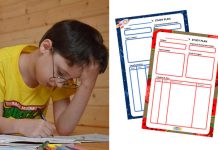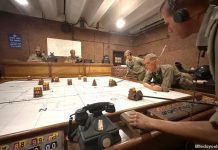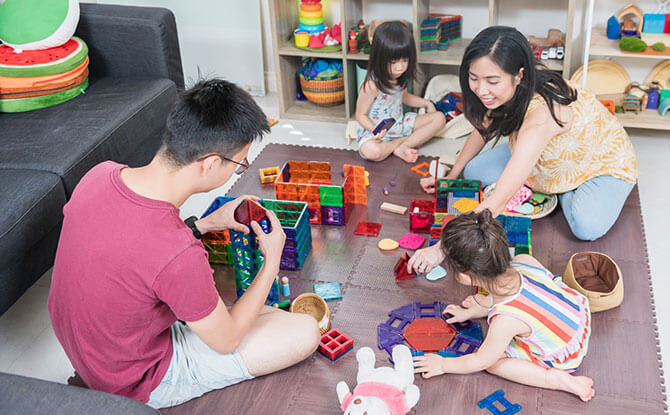
Play – is there a method to it? Why do some children lose interest in toys so quickly? What are the “best” toys to buy? Jules from Stories of Play gives her two cents worth of tips on how parents can play with their child and support relationships through play.
What are your top tips in encouraging parents to play with their child?

Set aside focused and intentional time in which you’re 100% physically and mentally present to engage in play with them. It’s not about the quantity, but the quality of time. I know it’s counter-intuitive to do this but I’ve found that if I set aside time at the start of each day, even just 10 minutes, to simply play with my children or read, basically just connecting with them and filling their cups, they are much better at independent play for the rest of the day and are able to develop and extend on their own play.
Additionally, play with them instead of playing for them. The former will leave your child feeling empowered and confident in his/her abilities, whilst the latter will cause them to be in doubt of their abilities to direct their play, which would mean they always end up wanting you to play with them every second of every day.
What are your kids’ favourite activities during this “stay home” period?
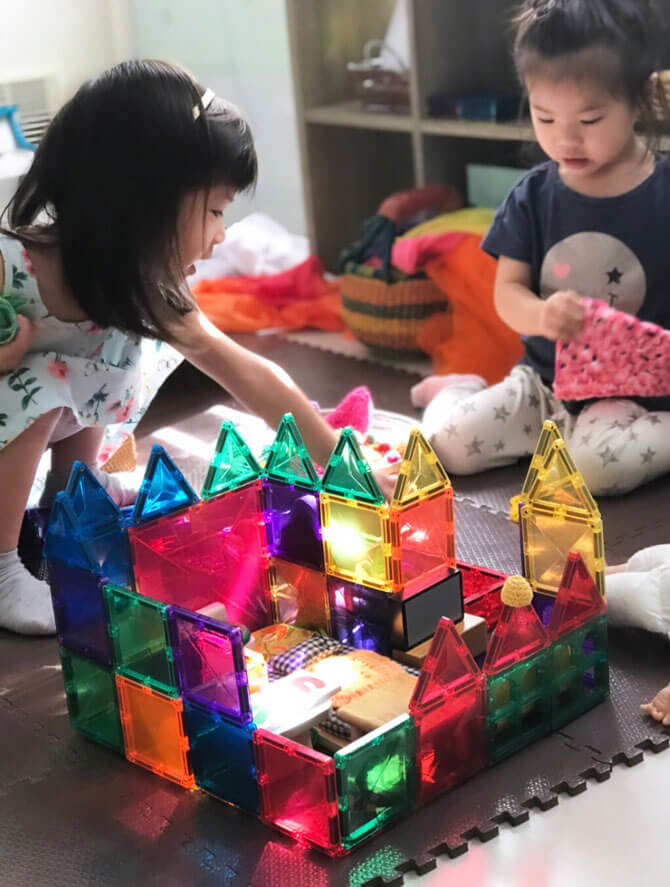
Even before this “stay home” period, their favourite activity is simply engaging in unstructured play and that looks different every single day. Depending on their interests, some days they would be focused on one activity pretty much the entire day and on other days, they would be pulling out every single item from our play areas.
In general, some of their favourite activities would be playing with magnetic tiles and blocks, engaging in pretend play, sensory play, creating in our home art space, reading and doing puzzles.
What are the best toys with the most bang for the buck?
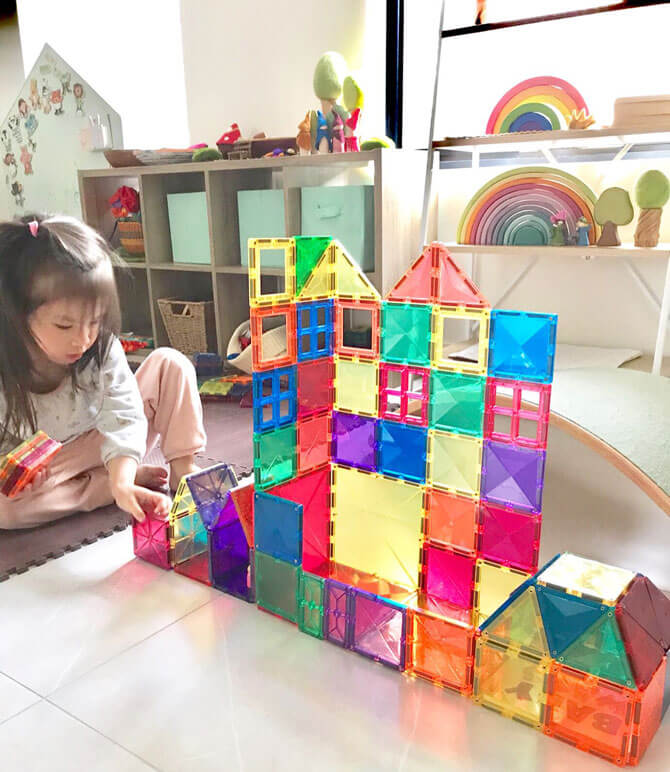
Magnetic tiles are the number one played with toy in our house. If there’s only one toy that I can recommend for children, it would hands down be this. No comparison! They are never rotated away and have been out in our play area every single day since my firstborn was around 18 months old. Because magnetic tiles are so incredibly open-ended as a toy, they are well-loved and are used by all three of my girls every single day in various ways. From construction play and imaginative play to homeschool activities like sorting and matching, and even fine motor activities for the youngest.
For more of my toy recommendations, here’s a blog post that I had previously written about the top 10 open-ended toys in our house.
SHOP: Magnetic Tiles
How do you resolve conflicts between siblings?
I don’t have a magic strategy that stops all fights. I wish I did. But I know that this is totally normal and developmentally appropriate. In fact, it happens every single day without fail in my household.
Children below the age of five are very ego-centric (focused on self) and are still learning about relating to others in a social situation i.e. turn-taking, sharing, patience etc and the best place to learn all the wonderful skills for social participation in their community is through play.
Toddlers don\’t have the ability to rationalise. They don\’t have the language ability to express themselves and communicate their needs and wants, so what ends up happening is that they snatch, they scream and they cry, even if they are the snatcher.
It is not our responsibility as parents to remove the problems they face, the frustration and all the other negative emotions that surface in the process, but rather it’s our job to support them in navigating those problems, frustrations and emotions.
Model the words they can use to ask for a turn and ask them to practise using those words to communicate their needs and wants. Literally put words in their mouth. Offer suggestions of things they can do to prevent those conflicts. Finally, be consistent with how you support them, because these strategies do not work overnight.
Play isn’t just Child’s Play

For work-from-home (WFH) parents, it is a challenge to get your routines disrupted with children asking to play. Setting aside quality time and giving full attention to your child for ten full minutes can be highly effective. Time at home is precious and this season will soon pass. Play with your child before the opportunity to do so disappears. For more tips on play, visit Jules at her Stories of Play Instagram and website.
READ: Part 1 Of This Interview – Life Down Under With Stories of Play: Staying Home And Staying Sane
READ: Blokus: Strategy Game That Kids And Families Can Enjoy Together
This story contains affiliate links. This means we earn a small fee if you purchase something through a link from our website. There is no additional cost to you. This helps to support Little Day Out and keeps us going.








